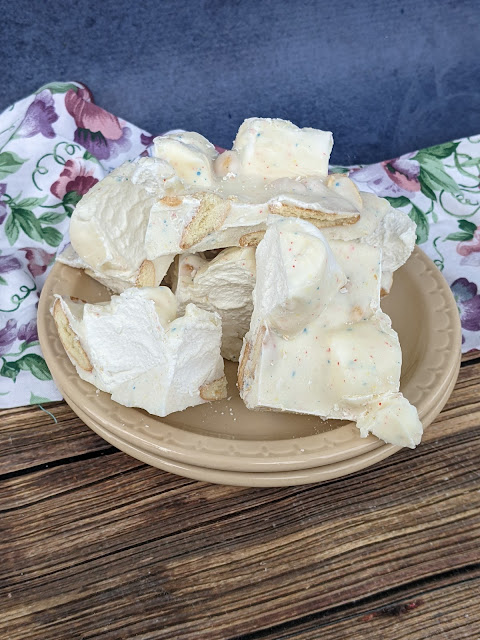
Photo by Joel Muniz on Unsplash
Take Care of Your Skin From the Inside Out
The best way to ensure that your skin looks its best is to make sure you're eating a balanced diet and drinking plenty of water. Eating nutrient-rich foods like fruits, vegetables, lean proteins, and healthy fats will help nourish your skin and keep it looking smooth, supple, and youthful.
Use Gentle Cleansers and Moisturizers on Your Face
Choose products specifically designed for your skin type (oily/dry/normal) to ensure they are not too harsh or irritating. Look for non-comedogenic ingredients that won't clog pores. Use lukewarm water when washing your face in order to avoid drying it out too much. And pat dry with a soft towel.
Protect Your Skin From the Sun
Wear sunscreen daily to protect your skin from harmful UV rays, which can cause premature aging. Make sure you are using a product with an SPF (sun protection factor) of at least 30 and apply it generously to all exposed areas at least 20 minutes before going out in the sun. Reapply every two hours or after swimming/sweating for optimal protection.
Treat Yourself to Facials and Peels
Regular facials and peels help to remove dead skin cells, clear clogged pores, and rejuvenate the complexion. Be sure to talk to your esthetician about what type of treatment is best for your skin type in order to avoid over-drying or irritation.
Make Time to Relax
Stress can cause a variety of skin problems, so be sure to make time for yourself and find ways to relax. This could include going for a walk, taking up yoga or meditation, reading a book, or whatever else helps you unwind.
How to Dress Your Skin
Choose clothing that is comfortable and breathable to prevent sweating and irritation. Natural fabrics like cotton are a great option, as they allow your skin to breathe and move more freely than synthetic fibers.
Different Types of Makeup
Choose makeup that is designed for your skin type and tone. Always start with a base primer to help create a smooth canvas, then add concealer and foundation as needed. Avoid using heavy products that may clog pores or cause irritation. At the end of the day, be sure to remove all your makeup with a gentle cleanser. This will help prevent acne breakouts, as well as allow your skin to breathe while you sleep.
Common Skin Care Mistakes
Avoid over-washing, which can strip the skin of its natural oils and cause dryness. Also, avoid picking or popping blemishes - this can damage the skin and lead to scarring. Finally, don't forget to apply moisturizer - even if your skin is oily or acne-prone. Moisturizing will help keep your skin healthy and hydrated.
Normal Skin Type
If you have normal skin, then congratulations! This is the ideal skin type. To maintain your complexion, be sure to follow a regular cleansing and moisturizing routine, wear sunscreen daily, eat a balanced diet, and get enough sleep. With the right care, you can keep your skin looking healthy and radiant for years to come.
Oily Skin Type
If you have oily skin, look for products specifically designed for your type of complexion. Use a gentle cleanser twice daily to remove dirt and oil buildup, and stick with oil-free moisturizers. Also, use blotting papers throughout the day to help absorb excess oils. Finally, be sure to wear sunscreen when going outdoors.
Dry Skin Type
People with dry skin need to be extra careful with their skincare routine. Use lukewarm water when washing your face and avoid over-scrubbing or using harsh cleansers, as this can strip the skin of its natural oils. Gentle cleansers and creamy moisturizers are best for this skin type. Additionally, drinking plenty of water will help keep the skin hydrated and healthy.
Sensitive Skin Type
If you have sensitive skin, then it's particularly important to be gentle with your skincare routine. Use hypoallergenic products designed for sensitive skin, and always perform a patch test before applying any new product. Additionally, avoid excessive sun exposure, as this can cause irritation or even allergic reactions. To keep your skin looking its best, use mild cleansers and gentle moisturizers on a regular basis.
Eczema
Eczema can be a difficult condition to manage, but there are steps you can take to help alleviate the symptoms and keep your skin healthy. Use mild cleansers and avoid any fragrances or dyes that might irritate the skin. Additionally, look for creams or ointments with an active ingredient like cortisone or hydrocortisone, as these can help reduce itching and inflammation. Finally, wear loose-fitting clothing made of natural fabrics to allow your skin to breathe. However, if you are skin of color, you may want to specifically look for products made for your skin type. Click also on this article, Eczema On Skin Of Color: Appearance, Symptoms, And Treatment, for further information on how to treat this condition depending on your skin type.
Acne
If you're dealing with acne, it's important to take a gentle approach. Use oil-free cleansers and avoid scrubbing your skin too harshly, as this can irritate the area. Additionally, use topical treatments such as benzoyl peroxide or salicylic acid to help treat breakouts. Lastly, be sure to get plenty of sleep and drink lots of water to keep your skin hydrated from the inside out.
Rosacea
Rosacea is a chronic skin condition that can be difficult to manage. To help reduce flare-ups, use gentle cleansers and apply sunscreen whenever you go outdoors. Additionally, look for products specifically designed for rosacea, such as creams or serums containing ingredients like green tea extract or niacinamide. Finally, speak to your doctor about any potential triggers and lifestyle changes you can make to help minimize the symptoms of this condition.
Psoriasis
Psoriasis is a skin condition characterized by red, scaly patches on the body. To help manage this condition, use moisturizers to soothe dryness and irritation. Additionally, try to avoid any potential triggers such as stress or certain foods. If necessary, your doctor may recommend topical treatments or light therapy to help reduce flare-ups.
Premature Aging
If you're concerned about premature aging of your skin, there are steps you can take to help prevent it. Be sure to wear sunscreen whenever going outdoors, eat a balanced diet full of antioxidants and vitamins, and avoid smoking cigarettes or drinking too much alcohol. Additionally, look for products containing vitamin A or retinol as these can help stimulate collagen production to maintain a youthful appearance.
Dark Spots
Dark spots can be caused by sun exposure, but they can also be hereditary. If you want to reduce the appearance of dark spots, look for products containing ingredients like vitamin C or hydroquinone. Additionally, avoid any excessive sun exposure as this can worsen the condition. While it may take some time before you start seeing results, with proper skincare and patience, you'll gradually begin to notice an improvement in the appearance of your skin.

Photo by Alina Scheck on Unsplash
All skin types require different levels of care and attention. To keep your skin looking healthy, it's important to identify the specific needs and create a skincare routine for yourself that fits those needs. Be sure to use gentle and natural products, avoid triggers like stress or certain foods, get plenty of sleep, drink lots of water, and wear sunscreen when going outdoors. With the right approach, you'll be able to maintain healthy-looking skin for years to come!
.jpg)
.jpg)
.jpg)
.jpg)









